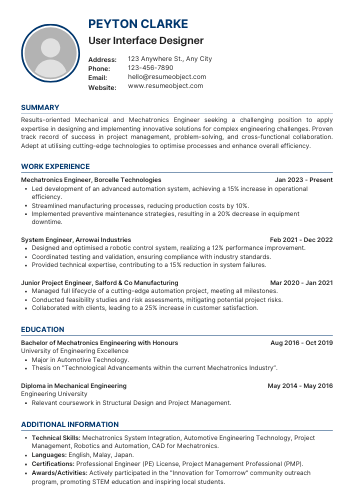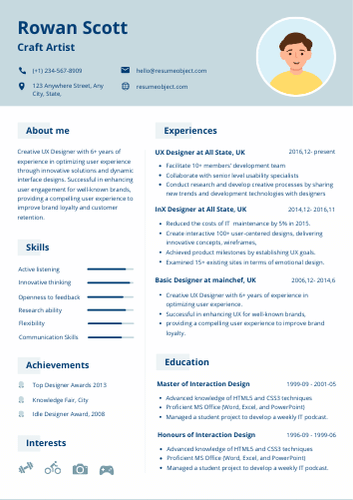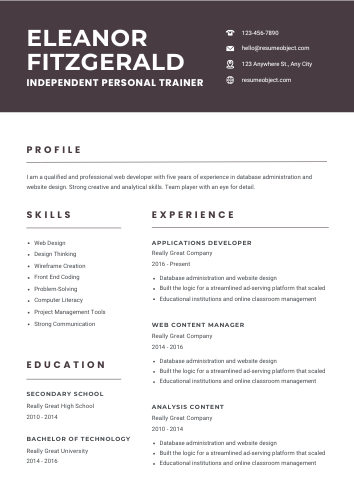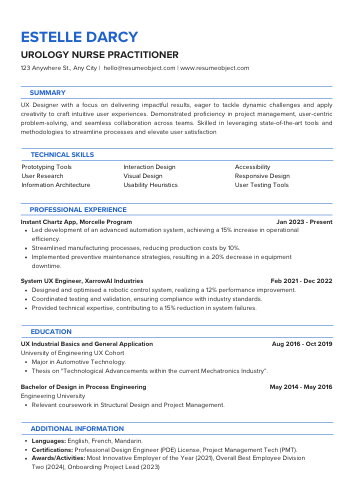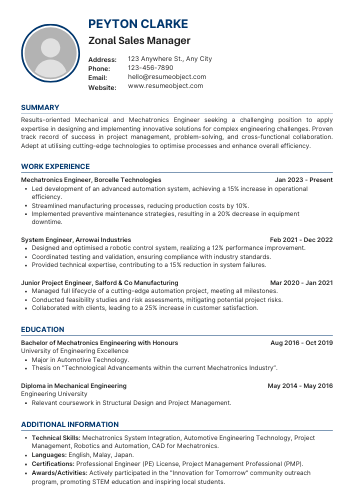36 Journalism Skills for Resume – How to List for Journalism Resume
Journalism Skills on Resume
Highlight 36 essential Journalism Skills for Resume to convince editors and hiring managers. Prioritize reporting, interviewing, fact‑checking, multimedia production, SEO storytelling, and data visualization. This concise guide shows how to order, quantify, and tailor skills to job descriptions so your resume demonstrates newsroom value and secures interviews, maximize impact with metrics, portfolio links, awards, and customized keyword alignment for roles.
Why Journalism Skills Matter for a Resume
Highlighting journalism skills on a resume demonstrates your ability to research accurately, write clearly, meet deadlines, adapt to multimedia platforms, and uphold ethical standards—showcasing the practical competencies employers seek and making your application stand out in a competitive media landscape.
Employers scan resumes for clear evidence of Journalism Skills for Resume that translate into credible reporting, deadline-driven output, and audience impact. Highlighting research, interviewing, ethics, multimedia storytelling and concise writing signals you can uncover facts, verify sources, and present information persuasively across platforms. Measurable achievements—story placement, readership growth, awards—turn skills into proof and make hiring decisions easier.
- Research & fact-checking: ensures accuracy and trust.
- Interviewing & relationship-building: uncovers exclusive insights.
- Writing & editing: delivers clear, concise copy under pressure.
- Multimedia & CMS proficiency: adapts stories for web, audio, video.
- Data literacy & sourcing: strengthens investigative reporting.
Positioning Journalism Skills for Resume around results (clicks, engagement, corrections avoided) and tailoring them to the role demonstrates immediate value. That focused presentation persuades editors you’ll boost newsroom quality, meet KPIs, and handle high-stakes stories with integrity and reduce legal risk while expanding audience trust through transparent sourcing and ethical judgment day-to-day operations.
Highlight your culinary strengths on resumes by reviewing essential Kitchen Skills for Resume to showcase efficiency, food safety, and teamwork, leadership, speed, precision, menu knowledge.
Top 20 Skills for a Journalism Resume
Journalism is a dynamic field that demands a diverse set of skills. Highlighting the right Journalism Skills for Resume can significantly enhance your chances of landing a job.
- Investigative Reporting
- News Writing
- Editing
- Research Skills
- Interviewing
- Multimedia Storytelling
- Social Media Proficiency
- Data Journalism
- SEO Optimization
- AP Style Knowledge
- Time Management
- Critical Thinking
- Ethical Reporting
- Audience Engagement
- Content Management Systems
- Broadcast Journalism
- Photography
- Video Editing
- Fact-Checking
- Press Release Writing
Top Hard Skills for a Journalism Resume
Following are the top hard skills for journalism resumes - concrete technical abilities and expertise that showcase reporting, multimedia production, data analysis, and newsroom tools proficiency, helping hiring managers assess your readiness for modern journalism roles.
-
Research Skills: Ability to gather information from various sources, ensuring accuracy and depth in reporting.
-
Writing Proficiency: Strong command of language and grammar to produce clear, engaging, and concise articles.
-
Interviewing Techniques: Skilled in conducting interviews to extract valuable insights and quotes from sources.
-
Editing Skills: Proficient in reviewing and refining content for clarity, coherence, and adherence to style guides.
-
Digital Literacy: Familiarity with digital tools and platforms for content creation, distribution, and audience engagement.
-
Social Media Savvy: Ability to leverage social media platforms for news dissemination and audience interaction.
-
Multimedia Production: Competence in creating and editing videos, podcasts, and infographics to enhance storytelling.
-
Data Journalism: Skills in analyzing and interpreting data to support investigative reporting and storytelling.
-
SEO Knowledge: Understanding of search engine optimization techniques to improve online visibility and reach.
-
Fact-Checking: Meticulous attention to detail in verifying information to maintain credibility and accuracy.
-
Time Management: Ability to prioritize tasks and meet tight deadlines in a fast-paced news environment.
-
Adaptability: Flexibility to adjust to changing news situations and the evolving landscape of journalism.
-
Networking Skills: Building and maintaining relationships with sources, colleagues, and industry professionals.
-
Legal Knowledge: Understanding of media law and ethics to navigate potential legal issues in reporting.
-
Analytical Thinking: Capability to critically assess information and trends to develop insightful stories.
Other Skills for Resumes
Top Soft Skills for a Journalism Resume
Below are the essential soft skills every journalism resume should highlight—communication, adaptability, and ethical judgment—that demonstrate your storytelling, newsroom collaboration, and audience connection, helping you stand out to editors and land interviews in media roles.
-
Communication Skills: The ability to convey information clearly and effectively, both in writing and verbally, is essential for journalists to engage their audience.
-
Critical Thinking: Journalists must analyze information from various sources, evaluate its credibility, and draw logical conclusions to report accurately.
-
Adaptability: The fast-paced nature of journalism requires professionals to adjust quickly to changing circumstances and new information.
-
Research Skills: Strong research abilities enable journalists to gather relevant information, verify facts, and provide context for their stories.
-
Attention to Detail: Precision in reporting and editing is crucial to avoid errors and ensure the integrity of the information presented.
-
Time Management: Effective prioritization and organization skills help journalists meet tight deadlines while maintaining quality in their work.
-
Interpersonal Skills: Building rapport with sources, colleagues, and the audience is vital for gathering information and fostering collaboration.
-
Storytelling Ability: The capacity to craft compelling narratives that resonate with readers enhances the impact of journalistic work.
-
Ethical Judgment: A strong sense of ethics guides journalists in making responsible decisions regarding sensitive topics and maintaining public trust.
-
Digital Literacy: Familiarity with digital tools and platforms is essential for modern journalism, allowing for effective content creation and distribution.
How to List Journalism Skills on a Resume
This concise guide shows recruiters your strengths by explaining how to list skills strategically, highlighting relevant experience, quantifying achievements, and tailoring content; practical tips and examples focus on Journalism Skills for Resume impact and clarity.
When crafting your resume, showcasing your Journalism Skills for Resume is crucial to stand out in a competitive job market. Begin by clearly listing your relevant skills in a dedicated section. This not only highlights your qualifications but also makes it easy for hiring managers to identify your strengths.
Key Journalism Skills for Resume:
- Research proficiency: Ability to gather and analyze information from various sources.
- Strong writing skills: Crafting clear, concise, and engaging content.
- Interviewing techniques: Effectively communicating with sources to gather insights.
- Multimedia skills: Experience with video, audio, and photography.
- Social media savvy: Utilizing platforms for story promotion and audience engagement.
- Editing and proofreading: Ensuring accuracy and clarity in written material.
- Adaptability: Thriving in fast-paced environments and adjusting to new challenges.
Incorporate these skills to enhance your resume and attract potential employers.
Resume Example for Journalism with Skills Highlighted
Discover a detailed example showcasing how to craft an effective journalism resume that emphasizes key skills. This sample resume provides valuable insights into presenting your expertise clearly to stand out in the competitive journalism field.
[Your Name]
[Your Address]
[City, State, Zip]
[Your Email]
[Your Phone Number]
Objective
Dynamic and detail-oriented journalism professional with a passion for storytelling and a commitment to delivering accurate and engaging news content. Seeking to leverage my journalism skills for a position at [Company Name].
Education
Bachelor of Arts in Journalism
[University Name], [City, State]
[Month, Year] – [Month, Year]
- Relevant Coursework: Investigative Reporting, Media Ethics, Digital Journalism
Experience
Staff Writer
[Current or Most Recent Employer], [City, State]
[Month, Year] – Present
- Conduct in-depth research and interviews to produce compelling news articles and features.
- Utilize strong journalism skills in fact-checking and editing to ensure accuracy and clarity in all published content.
- Collaborate with editors and photographers to develop engaging multimedia stories.
Intern Journalist
[Previous Employer], [City, State]
[Month, Year] – [Month, Year]
- Assisted in writing articles, press releases, and blog posts, honing essential journalism skills in storytelling and audience engagement.
- Gained experience in social media management, increasing audience reach and interaction through strategic content sharing.
- Developed a keen eye for detail through rigorous editing and proofreading of articles.
Skills
- Investigative Reporting: Proficient in conducting thorough research and interviews to uncover facts and insights.
- Writing and Editing: Exceptional writing skills with a strong ability to edit for clarity, grammar, and style.
- Digital Journalism: Experienced in using online platforms and social media to disseminate news and engage readers.
- Multimedia Production: Knowledgeable in video and audio editing to enhance storytelling through various media formats.
- Communication: Strong verbal and written communication skills, adept at conveying complex information clearly.
- Time Management: Proven ability to meet tight deadlines while maintaining high-quality standards in journalism.
Certifications
- Certified Journalist, [Institution Name], [Year]
- [Any other relevant certification]
References
Available upon request.
Action Verbs to Pair with Journalism Skills
Action Verbs to Pair with Journalism Skills on a Resume descriptors that highlight initiative, clarity, storytelling impact; use targeted Action Verbs to Pair with skills across bullet points to showcase measurable results relevant audience engagement
- Investigated
- Analyzed
- Reported
- Authored
- Edited
- Curated
- Interviewed
- Documented
- Collaborated
- Presented
- Published
- Synthesized
- Engaged
- Verified
- Communicated
Common Mistakes to Avoid When Listing Journalism Skills
Mistakes to avoid while adding Journalism Skills on a Resume: This guide pinpoints vague claims, poor examples, and formatting errors, outlining fixes, common mistakes to avoid while adding skills and Journalism Skills for Resume clarity.
When crafting your resume, showcasing your Journalism Skills for Resume is crucial to stand out in a competitive field. However, there are common pitfalls that can undermine your efforts. Avoiding these mistakes will ensure your skills are presented effectively, making a strong impression on potential employers.
- Overloading with Irrelevant Skills: Including skills that don’t relate to journalism can dilute your message and confuse hiring managers.
- Vague Descriptions: Simply listing skills without context or examples fails to demonstrate your proficiency and experience.
- Neglecting Soft Skills: Journalism isn’t just about technical skills; overlooking communication, teamwork, and adaptability can be a significant oversight.
- Ignoring Industry Keywords: Failing to incorporate relevant industry terminology can make your resume less searchable and appealing to recruiters.
- Not Tailoring Your Resume: Using a one-size-fits-all approach neglects the specific needs of each job, reducing your chances of being noticed.
By steering clear of these mistakes, you can effectively highlight your Journalism Skills for Resume and increase your chances of landing that coveted position.
Tips for Listing Journalism Skills on Resume
When crafting a resume, highlighting your Journalism Skills for Resume is essential to stand out in a competitive field. Employers are looking for specific skills that demonstrate your ability to report, write, and engage with various media formats. Here are some best tips to effectively showcase your journalism skills.
- Strong Writing Ability: Emphasize your proficiency in writing clear, concise, and engaging articles.
- Research Skills: Highlight your capability to conduct thorough research, ensuring accuracy and depth in your reporting.
- Multimedia Proficiency: Showcase your experience with various media platforms, including video, audio, and social media.
- Interviewing Skills: Mention your ability to conduct interviews that extract valuable information and insights.
- Editing and Proofreading: Include your skills in editing to ensure polished and error-free content.
By following these tips, you can effectively present your Journalism Skills for Resume, making a strong impression on potential employers.
Do
Do: Tailor your skills to the job description - Match keywords (AP style, multimedia reporting, CMS, data visualization) and prioritize skills the employer lists so automated screening and hiring managers see immediate relevance.
Do: Showcase multimedia and technical proficiency - List audio/video editing, CMS experience, social media strategy, SEO, and data tools (Excel, Tableau) to demonstrate modern newsroom versatility.
Do: Quantify achievements and impact - Replace vague claims with metrics (audience growth %, story views, investigative leads developed, awards) to prove results and influence.
Do: Highlight investigative, research & sourcing abilities - Emphasize fact-checking, FOIA requests, interviewing techniques, and beat expertise to show credibility and depth.
Do: Include a curated portfolio link and standout clips - Provide a concise selection of best articles, multimedia pieces, and data projects with context (role, outcome) so employers can quickly assess quality.
Don't
Don't: Stuff your resume with vague buzzwords - Replace generic terms like "team player" and "hard worker" with specific journalism skills (e.g., investigative reporting, source development, CMS proficiency) and measurable results to prove your value.
Don't: Ignore tailoring to the job - Highlight relevant journalism skills (beat expertise, multimedia storytelling, data visualization) that match the publication’s needs rather than using a one-size-fits-all resume.
Don't: Overload with unrelated experience - Prioritize journalism-relevant skills (AP style, fact-checking, interview techniques) and trim unrelated roles or clearly link them to transferable reporting skills.
Don't: Skip examples or evidence - Back claimed skills (deadline management, investigative techniques, audience growth strategies) with brief achievements, links to clips, or portfolio references.
Don't: Neglect clarity and readability - Use concise bullet-style summaries for skills (on-deadline reporting, audio editing, SEO for news) and a clean layout so editors can scan your journalism strengths quickly.
FAQs about Journalism Resume Skills
How many skills should I include on a Journalism resume?
Include 5-7 relevant Journalism Skills for Resume to showcase your expertise without overwhelming recruiters. Focus on key abilities like research, writing, editing, and multimedia proficiency to highlight your strengths effectively.
How do I know which skills are most relevant for a Journalism job role?
To identify the most relevant Journalism Skills for Resume, research job descriptions, highlight skills like investigative reporting, writing, editing, and digital media, and tailor them to match the specific role and employer requirements for maximum impact.
How can I prove the Journalism skills I list on my resume?
Showcase your Journalism Skills for Resume by providing published articles, writing samples, multimedia projects, or links to your portfolio. Include internships, awards, and relevant coursework to demonstrate your practical experience and credibility effectively.
Should I update my Journalism skills section for each job application?
Yes, tailor your Journalism Skills for Resume to match each job application. Highlight relevant skills and experiences that align with the specific role to increase your chances of standing out and demonstrating your suitability for the position.
How to list Journalism skills on a resume?
Highlight relevant Journalism Skills for Resume by showcasing writing, research, interviewing, fact-checking, and multimedia proficiency. Tailor skills to the job description, use action verbs, and provide examples demonstrating your expertise and impact in journalism roles.

Journalism Skills for Resume
Discover 36 Journalism Skills for Resume that recruiters want—how to list them with examples and tips to make your journalism resume stand out and get hired.
Top Hard Skills
Investigative reporting
Multimedia storytelling
Data journalism and visualization
News writing and editing
AP style and copyediting
Top Soft Skills
Clear written and verbal communication
Strong interviewing and interpersonal skills
Adaptable under tight deadlines
Exceptional attention to factual detail
Sound ethical judgment and integrity
Mistakes to Avoid When Listing Skills
Listing irrelevant buzzwords
Overstating proficiency levels
Cramming too many skills
Tips to List Skills
Prioritize industry-relevant skills
Quantify achievements with metrics
Tailor skills to job description
Free Resume Templates





